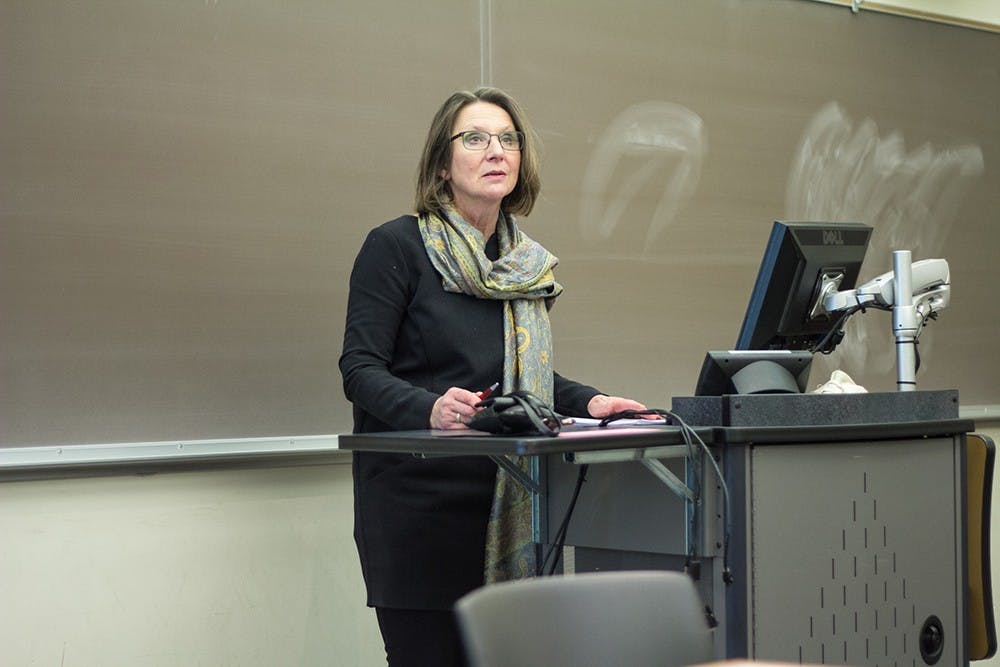Helen Geyer, professor of musicology at the Institute of Musicology Weimar at Jena since 1995, led a discussion focusing on the transitions in the open-minded decades since the 16th century, where the curiosity for and the participation in the most updated tendencies was a stimulating factor for courts, church chapels and private circles.
Geyer spoke Wednesday evening as part of the IU Jacobs School of Music lecture series. The lecture compared interests from both commercial and religious entities, from churches and courts to rural communities found in the countryside.
Geyer stopped the lecture halfway through to have the audience listen to pieces through the decades in order to actually hear the difference of exposure and transition of culture within the notes.
The land of 16th century Italy and Germany was divided into several small courts not important enough on their own to form a military by themselves. As a result, coalitions needed to form in order to have legitimate defense ?systems.
A new commercial class formed from these coalitions, allowing new courts to form across lands. Following the 30 Years’ War, a rich cultural life developed everywhere that suffered a significant ?aftermath.
This commercialization spread between 10 different areas of Germany and Italy, allowing the idea of printed music to spread as well. Education and knowledge flourished due to this exposure of contemporary musical ?styling.
“This is the music of the helpers,” Geyer said just before she previewed a piece for the audience.
Geyer went into detail regarding the particular religious and cultural ideals the music exemplified for most individuals at the time.
Printed music was the connection between church, court and commerce all in one — a revolution in the eyes of the 16th century.
“Music of the highest quality to give praise to God,” Geyer said. “It’s quite difficult to understand because it was such a rich commercial ?moment.”
Geyer said she accepts half of the invitations she receives to speak at universities as a guest lecturer. She believes the interaction with students that appreciate this particular style of music is nothing but positive.
Geyer has a background in the history of music between the sixteenth and the early twentieth century, with specializations that include opera and oratorio, music at the Venetian Ospedali and church music.
She founded the Academia Musicalis Thuringiae and is vice president of the Centro Tedesco di Studi ?Veneziani in Venice.






